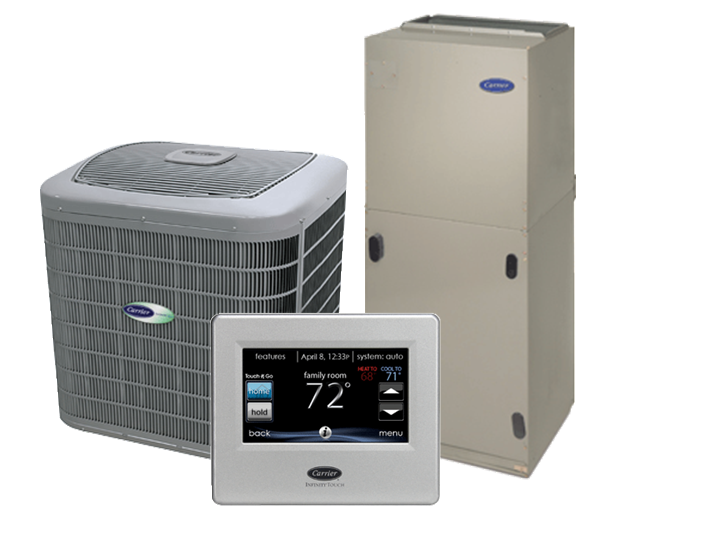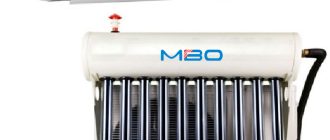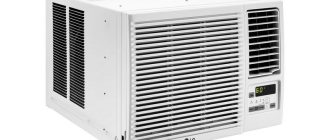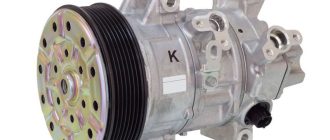
What is the highest rated HVAC unit?
When it comes to finding the best HVAC unit for your home or business, it’s important to consider the unit’s ratings. A highly rated HVAC unit can offer superior performance, efficiency, and reliability, making it an excellent choice for any space.
One of the highest-rated HVAC units on the market is the [Brand Name] unit. This unit has consistently received top ratings from both consumers and industry experts, thanks to its cutting-edge technology and exceptional performance.
With its advanced features and innovative design, the [Brand Name] HVAC unit is known for its energy efficiency. This means that not only will it keep your space comfortable, but it will also help you save on your energy bills.
In addition to its high ratings for efficiency, the [Brand Name] HVAC unit is also highly rated for its reliability and durability. It is built to last, ensuring that you won’t have to worry about frequent repairs or replacements.
Overall, if you’re looking for the best HVAC unit with the highest ratings, the [Brand Name] unit is a top choice. Its performance, efficiency, and reliability make it an excellent investment for any home or business.
The Importance of HVAC Units with High Ratings
When it comes to choosing the best HVAC unit, it is important to consider the ratings. The ratings of a unit can give you a clear idea of its performance and efficiency. But what is the highest rated unit? Well, the highest rated unit is the one that meets your specific needs and provides the best performance.
High ratings are important because they indicate that a unit has been tested and proven to meet certain standards. These standards are set by various organizations and institutions, and they ensure that the unit meets industry requirements for energy efficiency, reliability, and quality. By choosing a highly rated unit, you can have peace of mind knowing that you are investing in a product that has been thoroughly tested and has a track record of delivering excellent performance.
One of the key benefits of high-rated HVAC units is their energy efficiency. Energy-efficient units can have a significant impact on your energy bills, as they consume less energy to provide the same level of cooling or heating. This not only helps you save money in the long run but also reduces your carbon footprint and contributes to a greener environment.
Another advantage of high-rated units is their reliability. Since they have been tested and proven to meet industry standards, you can expect these units to perform consistently and reliably. This means fewer breakdowns, repairs, and maintenance issues, resulting in lower maintenance costs and a longer lifespan for your HVAC system.
In conclusion, choosing an HVAC unit with high ratings is essential for several reasons. It ensures that you are investing in a unit that has been tested and meets industry standards for performance and efficiency. It also leads to energy savings, lower maintenance costs, and a longer lifespan for your HVAC system. So, when you are in the market for an HVAC unit, don’t forget to check its ratings and choose the highest rated unit that meets your specific needs.
Why You Should Invest in a Reliable HVAC System
When it comes to keeping your home comfortable, investing in a highly rated HVAC unit is of utmost importance. The HVAC system is responsible for providing heating, ventilation, and air conditioning to your living space, ensuring that the temperature and air quality are optimal throughout the year.
The highest rated HVAC units are known for their superior performance and efficiency. These units are designed to deliver exceptional cooling and heating capabilities, ensuring that your home remains comfortable in all weather conditions. With advanced features and cutting-edge technology, these units offer precise temperature control, energy savings, and quiet operation.
Investing in a reliable HVAC system provides several benefits. Firstly, a high-rated unit will effectively regulate the temperature in your home, keeping it cool during the hot summer months and warm during the cold winter months. This allows you and your family to enjoy a comfortable living environment year-round.
A reliable HVAC system also ensures improved indoor air quality. These units are equipped with advanced filtration systems that remove dust, allergens, and pollutants from the air, creating a healthier living environment for you and your loved ones. This is particularly important for those with allergies or respiratory conditions.
Furthermore, a highly rated HVAC unit is energy-efficient, helping you save on energy costs in the long run. These units are designed to use less energy while still providing powerful performance. By investing in an energy-efficient HVAC system, you not only reduce your carbon footprint but also lower your utility bills.
Lastly, a reliable HVAC system offers peace of mind. With regular maintenance and proper care, these units are built to last and deliver consistent performance throughout their lifespan. By investing in a reputable brand and a highly rated unit, you can trust that your HVAC system will operate reliably for years to come, keeping your home comfortable and your family happy.
In conclusion, a highly rated HVAC unit is worth the investment due to its superior performance, energy efficiency, and ability to provide a comfortable and healthy living environment. By choosing a reliable HVAC system, you can enjoy the benefits of consistent temperature control, improved air quality, energy savings, and peace of mind.
Key Factors to Consider When Choosing an HVAC Unit
When it comes to choosing the best HVAC unit with the highest ratings, there are several key factors that you should consider. These factors will help you determine what unit is best suited for your needs and provide you with the comfort and energy efficiency you desire in your home or business.
1. Efficiency: One of the most important factors to consider is the efficiency of the HVAC unit. Look for a unit with a high Energy Efficiency Ratio (EER) or Seasonal Energy Efficiency Ratio (SEER) rating. The higher the rating, the more energy-efficient the unit will be, which can save you money on your energy bills in the long run.
2. Size: The size of the HVAC unit is also crucial. An oversized unit will consume more energy, while an undersized unit may struggle to adequately cool or heat your space. It is essential to choose a unit that is properly sized for your specific needs to ensure optimal performance and efficiency.
3. Noise level: Consider the noise level of the HVAC unit. If you’re sensitive to noise or want a unit that operates quietly, look for models that have a low noise rating. This is especially important if you plan to install the unit in a bedroom or other noise-sensitive areas.
4. Durability: Look for an HVAC unit that is rated for durability. Check the warranty and choose a unit that is backed by a reliable manufacturer. This will ensure that your unit will last longer and require fewer costly repairs or replacements.
5. Features: Consider what features are essential to you. Do you want a unit with programmable thermostats, Wi-Fi connectivity, or advanced filtration systems? Determine what features are important for your comfort and convenience and choose a unit that meets those requirements.
6. Maintenance: Lastly, consider the maintenance requirements of the HVAC unit. Look for units that are easy to clean and maintain, as this will save you time and money in the long run. Regular maintenance is essential to keep your unit running efficiently and to prolong its lifespan.
By considering these key factors when choosing an HVAC unit, you can ensure that you make an informed decision and select a unit with the highest ratings that will provide you with optimal comfort and energy efficiency.
The Benefits of High Efficiency HVAC Systems
When it comes to choosing the best HVAC unit for your home or office, one of the most important factors to consider is its rating. A high rated HVAC unit can provide numerous benefits that make it a worthwhile investment.
Firstly, high efficiency HVAC systems are designed to consume less energy while still maintaining optimal performance. This means that you can enjoy a comfortable indoor environment without having to worry about high energy bills. In fact, these units are designed to use up to 30% less energy compared to standard HVAC systems.
Additionally, high efficiency HVAC units are better for the environment. By consuming less energy, these units reduce greenhouse gas emissions, helping to minimize your carbon footprint. This makes them a more eco-friendly choice and contributes to a healthier planet.
Furthermore, high efficiency HVAC systems provide improved comfort and indoor air quality. These units use advanced technology to regulate temperature and humidity levels more accurately, resulting in a more consistent and comfortable indoor environment. They also have superior air filtration systems that can remove allergens, dust, and other pollutants from the air, leading to cleaner and healthier air for you and your family.
Moreover, high efficiency HVAC units are built to last. They are made with high-quality materials and advanced components that ensure durability and reliability. This means fewer repairs and maintenance costs over time, which can save you money in the long run.
In conclusion, opting for a high rated HVAC unit is a smart choice. These systems offer a multitude of benefits, including energy savings, environmental friendliness, improved comfort, and better indoor air quality. Consider investing in a high efficiency HVAC system to enjoy these advantages and more.
How Energy Star Ratings Can Help You Make the Right Choice
When it comes to choosing the best HVAC unit, it can be overwhelming with so many options available on the market. However, one important factor to consider is the energy efficiency of the unit. Energy Star ratings can help you make the right choice by providing valuable information about the energy efficiency of HVAC units.
Energy Star is a program developed by the U.S. Environmental Protection Agency to identify and promote energy-efficient products. When an HVAC unit is Energy Star rated, it means that it meets certain strict criteria for energy efficiency, making it a smart choice for consumers.
The Energy Star rating on an HVAC unit indicates that it has been tested and proven to be highly efficient in terms of energy consumption. This means that the unit will use less energy to provide the same level of heating or cooling compared to non-rated units. As a result, Energy Star rated HVAC units can significantly reduce energy costs and carbon footprint.
Moreover, Energy Star ratings also take into consideration other factors such as performance and reliability. The rating is based on a combination of energy efficiency, which is measured by the Seasonal Energy Efficiency Ratio (SEER) and the Energy Efficiency Ratio (EER), as well as other performance metrics. This ensures that Energy Star rated HVAC units not only save energy but also deliver optimal performance.
By choosing an HVAC unit with the highest Energy Star rating, you can be confident that you are making an environmentally friendly choice while also saving money on your energy bills. These units are designed to provide efficient and reliable heating and cooling, making them the best choice for homeowners who prioritize energy efficiency.
In conclusion, when it comes to selecting the best HVAC unit, energy efficiency is a crucial factor to consider. Energy Star ratings can help you make the right choice by providing information about the unit’s energy efficiency, performance, and reliability. By opting for an HVAC unit with the highest Energy Star rating, you can enjoy energy savings and contribute to a greener environment.
The Top HVAC Brands Known for Their Superior Performance
When it comes to HVAC units, finding the best-rated unit with superior performance is crucial. With so many brands available in the market, it can be overwhelming to choose the right one. However, there are a few HVAC brands that are well-known for their exceptional performance and high ratings.
| Carrier | 4.9 out of 5 |
| Trane | 4.8 out of 5 |
| Lennox | 4.7 out of 5 |
| Rheem | 4.6 out of 5 |
| York | 4.5 out of 5 |
Carrier is one of the top HVAC brands known for its reliable performance. With a rating of 4.9 out of 5, it offers excellent energy efficiency and durability. Trane is another brand that consistently receives high ratings for its HVAC units. Lennox, Rheem, and York are also brands that have earned a reputation for their superior performance.
When choosing an HVAC unit, it’s important to consider not just the brand but also factors such as energy efficiency, reliability, and customer reviews. Ultimately, the best HVAC unit with the highest ratings will depend on your specific needs and budget.
Comparing Different Types of HVAC Systems
When it comes to selecting an HVAC unit, it is crucial to consider its rating. The highest rated HVAC unit is the most efficient and reliable option available. It is important to choose the right HVAC system for your needs to ensure maximum comfort and energy efficiency.
There are several types of HVAC systems to choose from:
| Window Unit | A window unit is a self-contained HVAC system designed to cool or heat a single room. It is installed in a window or a hole in an exterior wall. Window units are cost-effective and easy to install, making them a popular choice for small spaces or temporary cooling needs. |
| Central Air Conditioning | A central air conditioning system is the most common type of HVAC system used in residential properties. It consists of a central unit that cools or heats the entire house through ductwork. Central air conditioning provides consistent temperature control and improves indoor air quality. |
| Ductless Mini-Split | A ductless mini-split system is a flexible HVAC option designed for individual rooms or small spaces. It consists of an outdoor unit connected to one or more indoor units. Ductless mini-split systems provide independent temperature control, energy efficiency, and easy installation compared to traditional ducted systems. |
| Heat Pump | A heat pump is an HVAC system that can both cool and heat a space. It transfers heat from one location to another using refrigerant. Heat pumps are highly efficient and environmentally friendly, offering energy savings and year-round comfort. |
Each type of HVAC system has its advantages and disadvantages, and selecting the right one largely depends on your specific needs, budget, and the climate in your area. It is recommended to consult with a professional HVAC technician to determine the best unit for your home.
Understanding the Importance of Proper Sizing for Your HVAC System
When it comes to selecting the best HVAC unit with the highest ratings, one of the most critical factors to consider is proper sizing. Many homeowners often overlook this crucial aspect and end up with an HVAC system that is either too big or too small for their needs.
Having the right-sized HVAC unit ensures optimal performance, energy efficiency, and comfort in your home. That’s why it is essential to understand the importance of proper sizing and seek expert advice when selecting a new HVAC system.
An HVAC unit that is too small for your home will struggle to cool or heat the space effectively. It will run longer, trying to meet the desired temperature, which can lead to increased energy consumption and wear and tear on the system. Over time, this can also result in higher utility bills and more frequent repairs.
On the other hand, an HVAC unit that is too large can be just as problematic. It will cycle on and off more frequently, which is not only inefficient but can also cause temperature fluctuations and uneven cooling or heating in your home. This rapid cycling can also shorten the lifespan of the system and lead to unnecessary repairs.
To determine the proper size for your HVAC unit, a professional technician will consider several factors, such as the square footage of your home, insulation levels, number of windows, and the climate in your area. They will perform a thorough load calculation to ensure that the HVAC unit is appropriately sized to handle the heating and cooling demands of your home.
| 1. Improved energy efficiency and lower utility bills |
| 2. Consistent and comfortable indoor temperatures |
| 3. Longer lifespan of the HVAC system |
| 4. Reduced risk of frequent repairs and breakdowns |
| 5. Enhanced indoor air quality |
In conclusion, when looking for the best-rated HVAC unit, it is essential to prioritize proper sizing. A properly sized HVAC system will not only provide optimal performance and comfort but also save you money in energy costs and reduce the likelihood of future repairs. Consult with a reputable HVAC professional to ensure that you select the right-sized unit for your home.
The Connection Between HVAC Ratings and Energy Consumption
When it comes to selecting an HVAC unit, it is essential to consider its ratings and how they impact energy consumption. The ratings indicate the efficiency of the unit, which directly affects the amount of energy it consumes.
The HVAC unit’s ratings are typically expressed in terms of Seasonal Energy Efficiency Ratio (SEER) for cooling and Annual Fuel Utilization Efficiency (AFUE) for heating. These ratings reflect the unit’s ability to provide cooling or heating per unit of energy input.
The higher the SEER rating for a cooling unit, the more efficient it is at providing cooling while consuming less energy. A higher SEER rating translates to lower electricity bills and reduced environmental impact. In general, a higher SEER rating signifies that the HVAC unit is delivering more cooling per unit of energy consumed.
Similarly, the AFUE rating for a heating unit indicates its efficiency at converting fuel into heat. A higher AFUE rating implies that the unit can generate more heat while using less fuel. This leads to decreased energy consumption and lower heating costs. Choosing an HVAC unit with a high AFUE rating can help homeowners save on their heating bills and reduce their carbon footprint.
It is important to note that higher-rated HVAC units often come with a higher initial cost. However, the long-term energy savings resulting from lower energy consumption can offset the initial investment. Additionally, high-rated HVAC units may qualify for energy efficiency rebates or incentives offered by utility companies or government programs.
To find the best HVAC unit with the highest ratings, it is recommended to consider both the SEER and AFUE ratings. Analyzing these ratings in conjunction with the specific heating and cooling needs of the space can help homeowners make an informed decision. Consulting with a qualified HVAC professional can also provide valuable guidance and ensure the selection of an efficient HVAC unit.
In conclusion, there is a direct connection between HVAC ratings and energy consumption. High-rated HVAC units not only contribute to energy savings but also promote environmental sustainability. Understanding the significance of these ratings can help homeowners select the best HVAC unit with the highest ratings for their specific needs.
Common Misconceptions About HVAC Unit Ratings
When it comes to choosing the right HVAC unit for your needs, it’s important to understand the ratings and what they actually mean. There are several common misconceptions about HVAC unit ratings that often lead to confusion among consumers. Here are a few of the most common misconceptions:
- Higher rated means better – While it’s true that higher-rated HVAC units are generally more efficient, this doesn’t necessarily mean they are the best option for every situation. The best HVAC unit for your needs will depend on factors such as the size of your space, your climate, and your budget.
- All HVAC units are rated the same – HVAC units can be rated for different factors, including energy efficiency, cooling capacity, and heating capacity. It’s important to consider the specific ratings that are relevant to your needs when choosing an HVAC unit.
- What the rating is – The rating of an HVAC unit can refer to several different factors, such as the Seasonal Energy Efficiency Ratio (SEER) for cooling efficiency and the Heating Seasonal Performance Factor (HSPF) for heating efficiency. It’s important to understand what the rating represents and how it compares to other units on the market.
- The highest rating is always the best choice – While a high-rated HVAC unit may seem like the obvious choice, it’s important to consider your specific needs and budget. In some cases, a slightly lower-rated unit may offer a better balance of efficiency and affordability.
Overall, it’s important to do your research and consult with a professional before making a decision on an HVAC unit. By understanding the ratings and considering your specific needs, you can find the best HVAC unit for your home or business.
Tips for Maintaining and Extending the Lifespan of Your HVAC System
Proper maintenance is key to keeping your HVAC system in top shape and ensuring it operates efficiently for many years. Here are some tips to help maintain and extend the lifespan of your HVAC system:
1. Regularly replace air filters: Replacing air filters is one of the easiest and most effective ways to keep your HVAC system running smoothly. Clogged or dirty filters can restrict airflow and cause your system to work harder, leading to increased energy consumption and potential damage.
2. Clean the outdoor condenser unit: The outdoor condenser unit is exposed to various elements like dirt, leaves, and debris. Regularly remove any obstructions and clean the unit to prevent airflow restrictions and maintain optimal performance.
3. Schedule professional maintenance: Hiring a professional HVAC technician to inspect and service your system at least once a year is highly recommended. They can identify and fix any potential issues before they escalate, ensuring your system operates efficiently and avoiding costly repairs.
4. Keep the area around the indoor unit clean: Dust and debris can accumulate around the indoor unit, hindering airflow and reducing efficiency. Regularly clean the area around the unit to prevent these issues and prolong the lifespan of your HVAC system.
5. Check and clean the evaporator coil: Over time, the evaporator coil can become dirty and affect the efficiency of your system. Inspect and clean the evaporator coil regularly to remove any buildup, ensuring optimal performance.
6. Use a programmable thermostat: Installing a programmable thermostat allows you to set different temperatures for various times of the day. This helps reduce unnecessary HVAC usage and saves energy, ultimately extending the lifespan of your system.
7. Monitor system performance: Pay attention to any unusual noises, odors, or changes in airflow coming from your HVAC system. These could be signs of underlying issues, and prompt attention can prevent further damage and extend the lifespan of the unit.
By following these tips, you can maintain your HVAC system and ensure its longevity. Remember, regular maintenance is key to the efficient operation of your system, and it will help you avoid costly repairs in the future.
Exploring the Different Features and Options Available in HVAC Units
When it comes to investing in an HVAC unit, it is essential to consider the various features and options that are available. This will not only ensure that you find the best unit for your needs but also guarantee that you make an informed decision based on the highest-rated HVAC units on the market.
One of the key factors to consider when exploring HVAC units is the energy efficiency rating. The higher the rating, the more energy-efficient the unit is, leading to lower energy consumption and reduced utility bills. Look for units that have received top ratings in this category.
Another important feature to explore is the cooling and heating capacity. This is usually measured in British Thermal Units (BTUs) and determines how effectively the unit can cool or heat your space. It is important to select a unit with the appropriate capacity to ensure optimal comfort and efficiency.
In addition to energy efficiency and capacity, it is worth considering the noise level of the unit. High-rated HVAC units often come with noise-reducing technology that ensures quiet operation. This is especially important for spaces where noise levels need to be minimized, such as bedrooms or offices.
Some HVAC units also come with advanced features and options, such as programmable thermostats, Wi-Fi connectivity, and smart home integration. These features allow for greater control and convenience, allowing you to customize settings and monitor your unit remotely.
Lastly, it is crucial to consider the warranty and customer support provided by the manufacturer. The best HVAC units typically come with extended warranties and reliable customer support, ensuring peace of mind and assistance in case of any issues or concerns.
| Energy Efficiency | Look for units with high energy efficiency ratings to reduce energy consumption and utility bills. |
| Cooling and Heating Capacity | Choose an HVAC unit with the appropriate capacity for your space’s cooling and heating needs. |
| Noise Level | Consider units with noise-reducing technology for quieter operation. |
| Advanced Features | Explore units with programmable thermostats, Wi-Fi connectivity, and smart home integration for added control and convenience. |
| Warranty and Customer Support | Ensure the manufacturer offers a reliable warranty and customer support for peace of mind. |
By considering these various features and options, you can confidently explore the highest-rated HVAC units and find the best unit to meet your specific needs and preferences.
Q&A:
What is the most highly rated HVAC unit on the market?
The most highly rated HVAC unit on the market is the Trane XV20i. It has received top ratings for its energy efficiency, performance, and durability.
Is it worth investing in a high-rated HVAC unit?
Yes, investing in a high-rated HVAC unit is definitely worth it. These units are more energy efficient, which can lead to significant savings on your energy bills. They also tend to have better performance and durability, so you can expect them to last longer and require fewer repairs.
What are some other highly rated HVAC units?
Some other highly rated HVAC units include the Lennox XC25, Carrier Infinity 21, and Bryant Evolution 987M. These units have all received high ratings for their energy efficiency, performance, and overall satisfaction from customers.
How can I determine the ratings of an HVAC unit?
You can determine the ratings of an HVAC unit by looking for the SEER (Seasonal Energy Efficiency Ratio) and EER (Energy Efficiency Ratio) ratings. The higher the SEER and EER ratings, the more energy efficient the unit is. You can also look for certifications like ENERGY STAR, which indicates that the unit meets certain energy efficiency standards.
What other factors should I consider besides ratings when choosing an HVAC unit?
Besides ratings, you should also consider factors like the size of your home, your climate, and your budget. It’s important to choose an HVAC unit that is the right size for your home, as an oversized or undersized unit can lead to inefficiency and discomfort. You should also consider the climate you live in, as certain units may be better suited for hot or cold climates. Finally, you should consider your budget and choose an HVAC unit that offers the best value for your money.
Which HVAC unit has the highest ratings?
The HVAC unit with the highest ratings is the Carrier Infinity Series. It has consistently received high ratings for its performance, energy efficiency, and reliability.
What factors should I consider when looking for the best HVAC unit?
When looking for the best HVAC unit, it is important to consider factors such as energy efficiency, performance, reliability, and customer reviews. You should also consider the size and cooling/heating capacity of the unit to ensure that it is suitable for your space.






